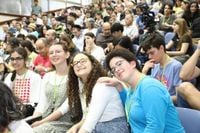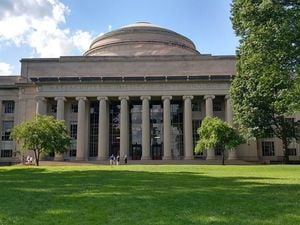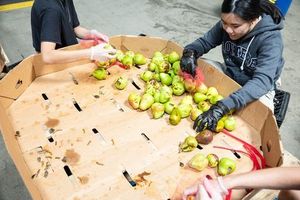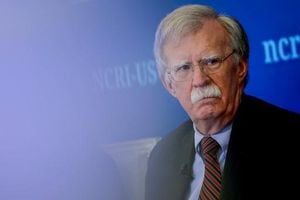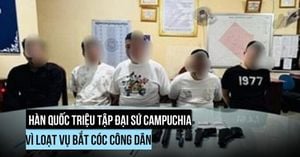In an era marked by rapid globalization and shifting identities, communities around the world are doubling down on efforts to preserve and revitalize their native languages. Recent events in the United States, Thailand, and Israel highlight a growing trend: language is not just a means of communication, but a living thread connecting generations, cultures, and even nations.
On September 23, 2025, a cozy corner of Downtown New Bedford, Massachusetts, will come alive with the sound of Portuguese conversation. The occasion? The launch of 'Não me Digas'—a free, pop-up language night designed to encourage conversational Portuguese in a relaxed, judgment-free environment. Hosted at Tia Maria’s European Café, the event is the brainchild of Hotel Papel, a program dedicated to celebrating the vibrant ties between Greater New Bedford, Fall River, and the Azores through arts and culture. According to South Coast Today, the gathering is open to all skill levels, from absolute beginners to fluent speakers looking to brush up on their skills.
“This is about bringing people together around language, culture, and community in a way that feels approachable and fun. We want to create a space where everyone feels comfortable trying out their Portuguese, while also celebrating the rich cultural ties that connect New Bedford to Portugal,” said Lara Harrington, founder of Hotel Papel and the event’s organizer. Harrington, who will lead the sessions, emphasized that 'Não me Digas'—which translates to 'Don’t tell me'—was inspired by friends and acquaintances who either feared losing their Portuguese or lacked opportunities to practice. “I also have many friends who understand Portuguese, but lack the confidence to speak it. This is a way for people to relax and allow fumbles without judgment,” she explained.
The event promises engaging activities such as games, music, and storytelling. Among the highlights is the traditional Azorean game marralhinha, which involves dice, marbles, and a healthy dose of friendly competition—a nod to the community’s roots. Each session will have a unique theme, with pre-event emails providing resources and conversation prompts to help participants prepare. “There will be an email sent out before each event that will offer resources and prompts to help people find content to talk about,” Harrington noted. The soundtrack, curated by Selectress Claudia Dee-Bee, will spotlight contemporary Portuguese music, further immersing guests in the culture.
‘Não me Digas’ is envisioned as a monthly gathering, rotating among local hotspots like Tia Maria’s in New Bedford, Portugalia in Fall River, and Figa in East Providence. The hope is that, over time, the program will spark deeper connections and keep the Portuguese language alive and well in the region. Those interested can join the mailing list to receive updates and resources, making it easy for anyone to jump in, no matter their skill level.
Half a world away, in Northeast Thailand, a different but equally passionate language celebration unfolded on September 8, 2025. Vietnamese Language Day was marked for the first time in the region, thanks to an initiative by the Consulate General of Vietnam in Khon Kaen. Held at Udon Thani Rajabhat University, the event drew educators, linguists, cultural experts, and leaders from both the Vietnamese and Thai-Vietnamese communities. According to Viet Nam News, the celebration was also connected online with locations in Vietnam, the Vietnamese Embassy in Bangkok, and the Consulate General in Fukuoka, Japan, symbolizing the broad reach and unity of the Vietnamese diaspora.
Consul General Dinh Hoang Linh opened the event with a poignant reminder of the past: nearly a century ago, President Ho Chi Minh began the first Vietnamese classes for expatriates in Udon Thani, laying the groundwork for a tradition that endures today. “Preserving the mother tongue and culture has become a valued tradition passed down through generations of Vietnamese in Thailand,” Linh said. The event also included a conference to review Vietnamese language teaching in 2025 and to chart a path for 2026, including the launch of advanced training programs for overseas Vietnamese teachers and volunteers in Northeast Thailand.
Viboon Pensuk, Vice Rector of Udon Thani Rajabhat University, highlighted the growing role of the Vietnam Studies Centre as a bridge for educational, cultural, and academic ties between Thailand and Vietnam. The centre has been instrumental in organizing language training, exchange programs, and internships, all aimed at strengthening the community’s linguistic and cultural bonds. For 2026, the centre aims to develop a data hub, publish bilingual learning materials, and become a model for Vietnam studies not only in Thailand but across the ASEAN region.
Hoang Thi Lai, Vice Chairwoman of the Vietnamese Association in Nong Khai province, shared her experience of running weekend Vietnamese language classes for children of overseas Vietnamese families. The new advanced training initiative is expected to boost teaching capacity and improve the quality of language education in Thailand, ensuring that Vietnamese remains a vibrant part of the community’s identity for generations to come.
Meanwhile, in Jerusalem, the Hebrew Language Olympiad is making headlines for its innovative approach to language learning and cross-cultural engagement. Set to present its 2025 awards on September 12, the Olympiad has grown from a local initiative at Tel Aviv University to a global event attracting over 5,600 participants this year. According to The Times of Israel, the competition now welcomes not only native Hebrew speakers but also learners from around the world, including 690 Arabic speakers from Israel and 281 students from countries such as the United States, Brazil, Germany, and Egypt.
One of this year’s most inspiring stories comes from Mahmoud, a Muslim participant from Egypt who joined after encouragement from an Israeli friend. “Hebrew, like any language, is a way to bring people together,” Mahmoud said. “Languages are not just sounds that come out of the mouth; they are also how we can understand each other and make peace, which we so need in our day. This event gives me hope for a better world.” Due to safety concerns, Mahmoud will accept his award via video call, a testament to the sometimes fraught but always hopeful nature of cross-cultural exchange.
The Olympiad stands out for its emphasis on critical thinking and linguistic puzzles. Rather than focusing on rote memorization, contestants are challenged to compare biblical Hebrew with Talmudic Hebrew and apply linguistic concepts in creative ways. “The goal isn’t necessarily to succeed or get a perfect answer, it’s to enjoy the process,” explained Einat Gonen, founder of the Olympiad and a senior lecturer at Tel Aviv University. Still, one contestant, Ma’ayan Bar-Helmer, an Israeli 11th grader, achieved a perfect score and took first place with outstanding honors.
The competition has also helped drive innovation in Hebrew education abroad, with organizations like the Consortium for Teaching Hebrew at Brandeis University promoting proficiency-based models and immersive learning. “Our challenge now is bringing this approach to more schools around the world,” said Professor Vardit Ringvald, head of the Consortium. The Olympiad, with its growing international reach and emphasis on connection, is a vital part of that mission.
Whether in a café in Massachusetts, a university in Thailand, or a competition hall in Jerusalem, these language initiatives are more than academic exercises. They are lifelines—keeping communities connected to their roots, fostering understanding across divides, and ensuring that the music of native tongues continues to echo for generations to come.
